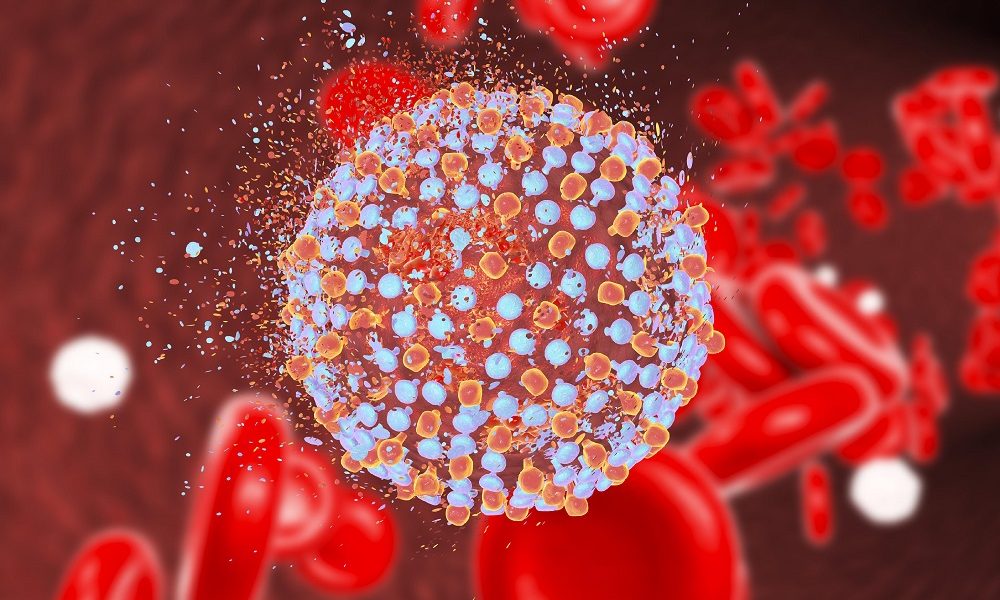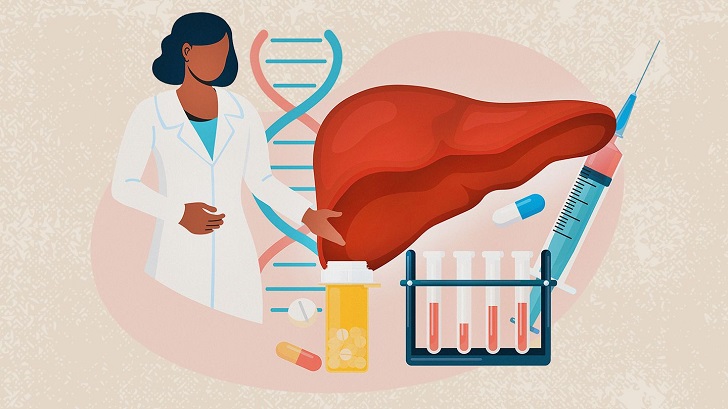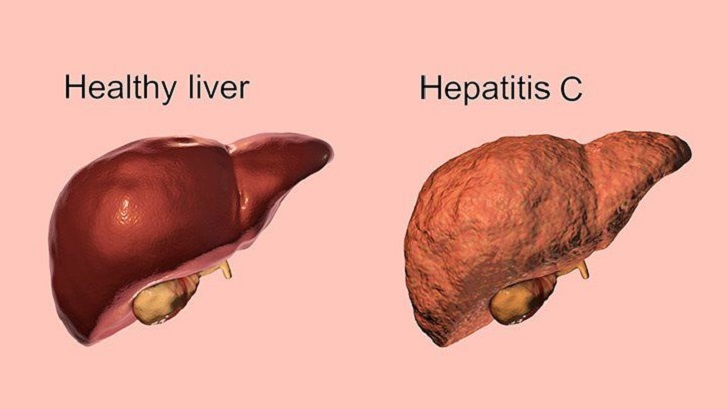
Breakthrough in Hepatitis C Treatment Therapy

Hepatitis C has long been a formidable global health challenge, affecting millions and causing significant morbidity and mortality worldwide. However, recent medical advancements have brought about a breakthrough in treating this chronic liver disease.
Introducing direct-acting antiviral (DAA) drugs has revolutionized the management of Hepatitis C, offering new hope to patients. This article delves into the latest breakthroughs in Hepatitis C treatment, examining their impact on patients and the potential for a brighter future.
Understanding Hepatitis C
Hepatitis C is a viral infection that primarily affects the liver. It is transmitted through exposure to infected blood, most commonly through intravenous drug use, unsafe medical procedures, or blood transfusions. The global burden of Hepatitis C is substantial, with an estimated 71 million people living with chronic infection.

Getty Images/ Clinicaladvisor | Exposure to contaminated blood and bodily fluids can cause transmission of HCV
Traditional Treatment Approaches
In the past, the standard treatment for Hepatitis C involved interferon-based therapy combined with ribavirin. However, this approach was associated with limited efficacy and significant side effects, often making it difficult for patients to complete the treatment regimen. Many individuals had chronic infections and a higher risk of developing liver complications such as cirrhosis and liver cancer.
Direct-Acting Antiviral (DAA) Revolution
The introduction of DAA drugs has transformed the landscape of Hepatitis C treatment. Unlike interferon-based therapy, DAAs directly target the replication of the hepatitis C virus, resulting in higher cure rates and fewer side effects. These medications inhibit specific proteins essential for viral replication, effectively suppressing the virus and allowing the liver to heal.
Benefits of DAA Treatment
DAA therapy offers numerous benefits to patients. Firstly, the cure rates achieved with these drugs are remarkable, often exceeding 95%. This means most patients can now achieve a sustained virologic response, indicating that the virus is undetectable in their blood six months after treatment.
Additionally, DAA drugs have a favorable safety profile, with minimal side effects compared to previous treatments. This enhances patients’ well-being during the treatment period and improves their adherence to therapy.

Adobe Stock / Everydayhealth | Some people can clear Hepatitis C from their body naturally, while others may go on to develop chronic Hepatitis, which must be treated
Latest Breakthroughs
Continued research and development have led to further breakthroughs in treating Hepatitis C. Pan-genotypic drugs have been developed, which are effective against multiple virus genotypes. This simplifies treatment protocols, eliminating the need for extensive genotyping and allowing healthcare providers to prescribe a single medication for a broad range of patients.
Moreover, advancements have been made in shortening the duration of treatment. Previously, treatment courses could span several months, but recent studies have demonstrated the efficacy of shorter regimens, some as brief as eight weeks. This not only improves patient convenience but also reduces the overall cost burden of treatment.
Impact on Patients and Public Health
The impact of these breakthroughs extends beyond individual patients. Successful treatment of Hepatitis C leads to improved quality of life, as patients experience resolution of symptoms and a reduced risk of liver complications. Curing the infection can halt or even reverse the progression of liver fibrosis, cirrhosis, and hepatocellular carcinoma.
Furthermore, effective treatment plays a crucial role in preventing the transmission of Hepatitis C. High cure rates significantly reduce the risk of transmitting the virus to others. This benefits individuals and contributes to public health efforts to control the spread of the disease.
In terms of healthcare economics, the cost-effectiveness of DAA therapy has been demonstrated. The financial burden on healthcare systems can be reduced by achieving high cure rates and preventing long-term liver complications. Additionally, generic versions of these drugs have made treatment more affordable and accessible in many regions.

iStock/ Everydayhealth | Symptoms for Hepatitis C may not show often and thus require Screening of liver
Challenges and Future Directions
While significant progress has been made, challenges remain in the fight against Hepatitis C. Improving diagnosis and screening efforts to identify individuals with chronic infection is crucial, as many remain undiagnosed. Targeted screening strategies for high-risk populations can help identify cases early and ensure timely treatment initiation.
Furthermore, ensuring access to treatment in low-resource settings and marginalized populations remains challenging. Efforts should be made to make these life-saving medications available and affordable to all those in need, regardless of socioeconomic status.
Addressing the stigma associated with Hepatitis C is another important aspect. Education and awareness campaigns are needed to dispel myths and misconceptions surrounding the disease, promoting a supportive environment for individuals seeking diagnosis and treatment.
The breakthrough in treating Hepatitis C through direct-acting antiviral drugs represents a significant advancement in the field of medicine. These medications have transformed the management of Hepatitis C, offering high cure rates, minimal side effects, and shorter treatment durations.
The impact on patient’s lives and public health is substantial, with improved quality of life, reduced liver complications, and prevention of transmission. However, efforts must continue to address challenges such as diagnosis, treatment access, and stigma. By combining ongoing research, public health initiatives, and global collaboration, we can strive for a future where Hepatitis C is no longer a global health threat.
More in Treatment
-
`
5 Reasons Why Dad’s Side of the Family Misses Out
Family bonds are intricate and multifaceted, often creating a unique tapestry of connections. However, many people notice a peculiar trend: stronger...
July 12, 2024 -
`
A Quick Guide on How to Get Short-Term Disability Approved for Anxiety and Depression
Living with anxiety or depression poses unique challenges, particularly in the workplace, where stress can exacerbate symptoms. For many, short-term disability...
July 5, 2024 -
`
Why Do People Feel Sleepy After Eating?
Is feeling sleepy after eating a sign of diabetes? Well, not directly. There are many reasons why you feel drowsy after...
June 20, 2024 -
`
What Is High-Functioning Depression? Symptoms and Treatment
High-functioning depression may not be a term you hear every day, but it’s a very real and challenging experience for many....
June 13, 2024 -
`
Kelly Clarkson’s Weight Loss Ozempic Journey – Debunking the Rumors
In a refreshing moment of transparency, Kelly Clarkson, the beloved singer and talk show host, sheds light on her remarkable weight...
June 3, 2024 -
`
What Is the Best Milk for Gut Health and Why?
In recent years, the milk section at the grocery store has expanded far beyond the traditional options. While cow’s milk has...
May 30, 2024 -
`
Do Dental Implants Hurt? Here’s All You Need to Know
When you hear “dental implants,” you might wince at the thought of pain. But do dental implants hurt as much as...
May 24, 2024 -
`
5 Key Differences Between A Psych Ward & A Mental Hospital
Curious about the differences between a psych ward and a mental hospital? You are not alone. With the mental health conversation...
May 16, 2024 -
`
It’s Official! “Selling Sunset’s” Christine Quinn & Husband Christian Dumontet Are Parting Ways
Have you ever found yourself unexpectedly engrossed in the personal lives of celebrities, especially when their stories take dramatic turns? Well,...
May 9, 2024










You must be logged in to post a comment Login